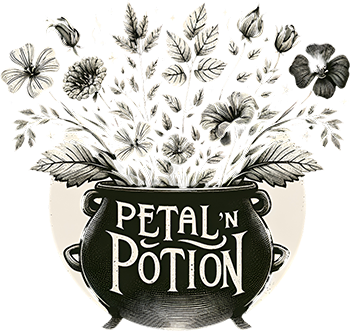R o s e m a r y
Rosemary (Rosmarinus officinalis) is an aromatic herb native to the Mediterranean region.
Known for its distinctive aroma and flavor, rosemary is widely used in cooking, as well as in traditional medicine
for its potential health benefits, including cognitive enhancement, antioxidant properties, and digestive support.
Benefits
- Cognitive Health: May improve memory, concentration, and overall cognitive function.
- Antioxidant Properties: Provides antioxidants that protect cells from oxidative stress and damage.
- Anti-Inflammatory: Reduces inflammation, benefiting conditions like arthritis and other inflammatory diseases.
- Digestive Health: Promotes healthy digestion and alleviates symptoms such as bloating, indigestion, and gas.
- Immune Support: Enhances immune function and helps the body fight off infections.
- Respiratory Health: Helps relieve symptoms of respiratory conditions such as asthma and bronchitis.
- Heart Health: Supports cardiovascular health by improving blood circulation and reducing cholesterol levels.
- Pain Relief: Alleviates pain associated with various conditions, including headaches and muscle pain.
- Hair Health: Promotes hair growth, reduces dandruff, and improves scalp health.
- Skin Health: Benefits skin conditions due to its antimicrobial and antioxidant properties.
Active Compounds
- Rosmarinic Acid: The primary active compound responsible for rosemary’s antioxidant and anti-inflammatory properties.
- Carnosic Acid: Contributes to the plant’s neuroprotective and antioxidant effects.
- Carnosol: Known for its anti-inflammatory, antioxidant, and anticancer properties.
- Essential Oils (including Cineole, Camphor, and Alpha-Pinene): Provide antimicrobial, anti-inflammatory, and respiratory benefits.
- Flavonoids: Offer additional antioxidant protection and support overall health.
- Tannins: Known for their astringent and antioxidant properties.
Who Should Avoid This
- Individuals with Allergies: Those allergic to rosemary or related plants should avoid it.
- Pregnant and Nursing Women: Consult a healthcare provider before use, especially in large amounts.
- Individuals with Epilepsy: Use caution due to potential seizure risk at high doses.
- Individuals with Blood Pressure Issues: Consult a healthcare provider if you have hypertension or hypotension.
- Individuals on Medication: Particularly those taking anticoagulants, diuretics, or diabetes medications should consult a healthcare provider to avoid interactions.
- Children: Consult a healthcare provider before giving rosemary in medicinal doses to young children.
Warnings
While rosemary offers numerous health benefits, some precautions and potential side effects should be considered:
- Allergic Reactions: Can cause allergic reactions in some individuals.
- Pregnancy and Breastfeeding: Consult a healthcare provider before use, as high doses may not be safe.
- Seizure Risk: High doses of rosemary may increase the risk of seizures, particularly in individuals with epilepsy.
- Blood Pressure: May affect blood pressure; use caution if you have hypertension or hypotension.
- Interactions with Medications: May interact with certain medications, including anticoagulants, diuretics, and diabetes medications.
Usage Guidelines
Rosemary can be used both short-term and long-term, depending on the condition being treated. For acute issues such as improving digestion or relieving respiratory symptoms, it is typically used until symptoms improve. For ongoing benefits such as cognitive enhancement, immune support, or general wellness, longer-term use may be appropriate but always under the guidance of a healthcare professional. Always consult with a healthcare provider to determine the correct dosage and duration for your specific needs.
